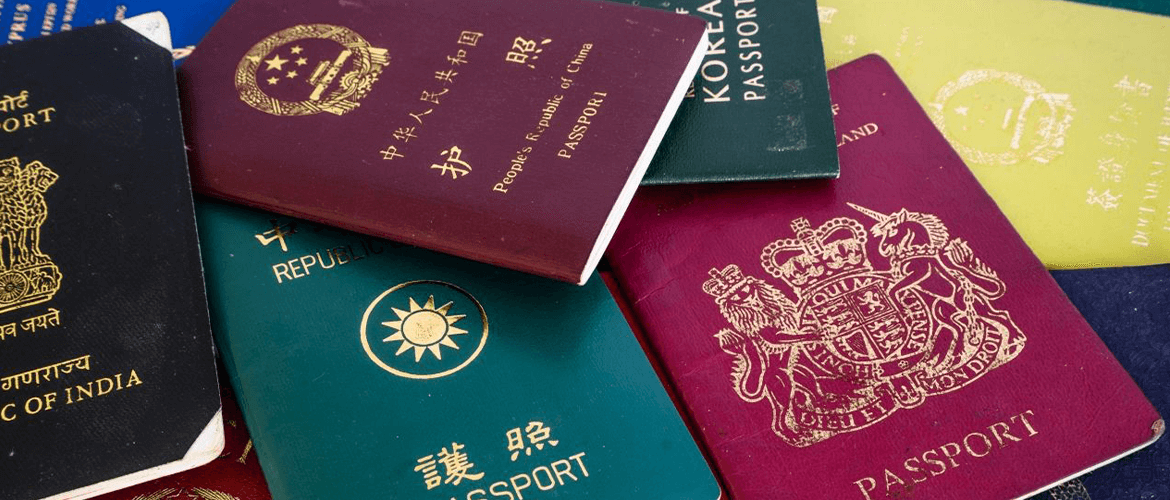Have Passport, Will Travel? Not in Post-covid Skies
September 4, 2020 | Expert Insights
It has been nine months since the pandemic shook the world. A vaccine is somewhere on the horizon, and second surges are peaking. Yet, international travel guidelines are still to be settled. Countries that were able to reduce their cases to single-digit figures or none at all, like New Zealand, have seen a rise again as international travel resumed in a truncated manner.
This leads to the question of the deteriorating value of a passport post-COVID-19. Henley and Partners, a global citizenship and residence advisory firm based in London, showed that when current travel restrictions are taken into account, certain countries are worse off. The U.S., typically ranked 7th on the power of passport index, with its citizens being able to visit 185 countries, has seen its ranking drop to the 25th spot. Given the irony of U.S. President Donald Trump's rhetoric about Mexican immigrants, Americans now have about the same travel freedom as Mexican citizens (25th).
The exchange of people across countries would now depend on immunity and healthcare rather than a carte blanche that first-world countries enjoyed prior to the pandemic.
FUTURE HOMES
According to Henley & Partners, there has been a 42 percent increase in applications for a new nationality during the first three months of 2020, and inquiries too have risen by 25 per cent. Those who can afford it, look at alternative nationalities as safety nets, and one criterion is good healthcare. The most popular permanent residency programmes are the ones in Australia, Austria, Antigua, St. Kitts and Nevis, Tuvalu, Vanuatu, Portugal, Switzerland, Cyprus, Montenegro, and Malta. These places offer permanent residency or nationality in return for a direct donation to the national treasury, or investments. Austria and Australia are most preferred because of their precautionary measures against the pandemic.
Last week, the European Union announced its "safe travel" list of 14 countries that would be allowed to visit the Schengen area countries as tourists. The list included Australians, New Zealanders and Canadians, but the Americans, Japanese, and Singaporeans were excluded.
Juerg Steffen, CEO of Henley & Partners, says the growing demand for additional residence and citizenship options comes as no surprise. " For investors and their families, having second citizenship or an alternative residence is an even more precious asset than ever before, as concerns over access to first-rate healthcare, global mobility, and quality of life take on a new urgency."
ARE IMMUNITY PASSPORTS IMMINENT?
Are immunity passports imminent? Yes and no. Yes, because almost all travellers have to get a PCR test (or its equivalent) 48 hours before departure. Having an immunity passport could be a useful and easier way to fly, allowing the process to be hastened. No, because there isn’t enough information about immunity against the COVID-19 virus to know how stable the very concept is. Ill-conceived policies could cause unintended harm that could result in greater stigmatisation of people and heightened risks due to wrong test results. The WHO opines that immunity certificates could risk continued transmission of the virus, and lead to people ignoring public health advice. Laboratory tests that detect antibodies in people need further validation to determine their accuracy and reliability. Inaccurate immunodiagnostic tests could falsely categorise people.
Proper implementation of an immunity passport programme would require centralised, bottom-up policies that allow for access to testing based on societal need and not solely for the elite, according to an article published in the Journal of Infectious Diseases.
CITIZENSHIP BY INVESTMENT
The popular avenue for a second nationality through citizenship by investment has Montenegro and Cyprus being the most popular so far in 2020, with new applications up 142 per cent and 75 per cent, respectively, in the first quarter of 2020, compared with the fourth quarter of 2019. Residency programmes in Australia and New Zealand are also in high demand.
"Many people in the ultra-high-net-worth bracket are interested in Cyprus and Malta because it grants the applicant and family unlimited access and settlement freedom throughout the European Union," says Dominic Volek, Head of Asia at Henley & Partners, to CNN Travel.
Five of the twelve formal citizenships through investment programmes are in Europe — Cyprus, Malta, Moldova, Montenegro, and Turkey. This has naturally interested EU policymakers. Al Jazeera's Investigative Unit published 'The Cyprus Papers', a collection of leaked documents that showed Cyprus sold passports to criminals, fugitives, and people considered to be of high risk for corruption. European Commissioner for Justice Didier Reynders has stated that he is looking into the possibility of legal action against Cyprus over the country's scheme. Cyprus ramped up its citizenship-by-investment scheme after its economic crisis in 2013. Since then, $8 billion, much of it from Russians, has kept the economy afloat. Russia even tried to reverse this financial flow, demanding a new treaty to increase the tax paid on money moved into Cypriot banks. Cyprus changed its rules, which now enables the country to strip citizenship off anyone who is considered damaging to Cyprus's national interests.
ASSESSMENT
- While passports are not going anywhere, the ease of travel that countries like the U.S. enjoyed could be hit in the post-pandemic world until information about vaccines and immunity is properly authorised. This could lead to a lesser flow of travel and opportunities to Americans in general than would have been accessible to them otherwise.
- Immunity passports are still a long way off, and until then, travel restrictions shall be in place to reduce a second surge and higher infection rates.
- The concept of a second nationality and citizenship by investment is coming under scrutiny in places like Cyprus, which gives people access to the wide world of the EU Schengen Area. However, this also leaves the door open to anyone who can afford to pay their way in, leading to questions about external influences, like of Russia in Cyprus.



Comments